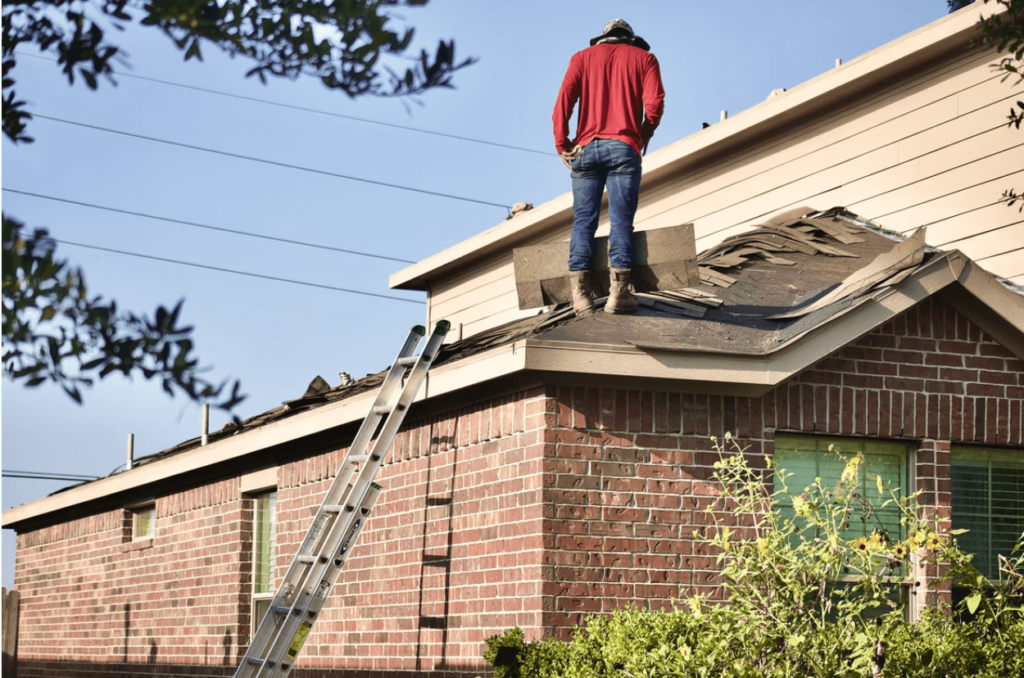Replacing your roof is a major home improvement project that can provide many years of protection and value to your home. It’s important to be well-informed about the process before getting started, so you can make the best decisions for your particular situation and budget. From figuring out if you need a new roof or if repairs would suffice to choosing the right contractor and materials, here are six things to keep in mind before replacing your roof.
Determine Whether You Need Repair or Replacement
There are a few telltale signs that you may need to replace your roof. If you notice any of the following, it might be time for a new roof:
- Your roof is more than 20 years old
- You have leaks in your home
- The shingles are missing or curling up
- There is water damage on your ceilings or walls
If you have two or three of these symptoms, it’s likely time for a new roof. However, the best way to ensure that you need a new roof and not just repairs are to have a professional roofing contractor come and inspect your roof.
Pick The Right Material For Your Roof
Depending on several factors including the climate in your area, the style of your home, and your budget, certain materials will be better suited for your needs than others. Each type of roofing material has its benefits and drawbacks, so it’s important to weigh all of these factors before making a decision. In general, the most popular option for residential roofs is asphalt shingles. And while installing an asphalt shingle roof is not the cheapest option upfront, it is one of the most cost-effective roofing materials in the long run. However, if you live in an area with severe weather conditions, you may want to consider a more durable material such as metal or slate. Just keep in mind that these materials are not only more expensive but also more difficult to install, so you’ll need to factor that into your decision.
Choose The Right Roofing Contractor
Perhaps the most important factor in ensuring a successful roof replacement is choosing the right roofing contractor. This is not a DIY project, and you must find a reputable contractor who has experience installing the type of roof you’ve chosen. Start by asking for referrals from family and friends, and then do your research to make sure the contractors you’re considering are properly licensed and insured. Once you’ve narrowed down your options, be sure to get multiple estimates before making a final decision. And make sure you get everything in writing, including the scope of work and price, before work begins.
Check Local Building Codes
Before any work on your roof can begin, you’ll need to obtain the necessary permits from your city or county. And to do that, you’ll need to make sure your plans meet all local building codes. These codes can vary depending on your location – in some areas, you may need to install a certain type of roofing material or follow specific installation practices to meet the code. Therefore, it’s important to consult with your contractor and research the requirements in your area. Also, keep in mind that your contractor should be responsible for obtaining the permits, so be sure to verify that they will take care of this before work begins.
Prepare Your Home For Construction
Installing a new roof is a major construction project, so you’ll need to take some steps to prepare for the work ahead. First, be sure to clear away any debris or objects from your yard that might get in the way of construction. This includes things like patio furniture, grills, and children’s toys. You should also move any vehicles out of your driveway so that the contractor has easy access to your home. If you have pets, you’ll need to make arrangements for them to be out of the house during construction. Not only is this for their safety, but it will also make the process less disruptive for everyone involved. And finally, make sure to notify your neighbors about the construction work that will be taking place. This will help avoid any conflict or disruptions during the project.
Have A Contingency Plan
Even if you do everything right, there’s always a chance that something can go wrong during a roof replacement. Therefore, it’s important to have a contingency plan in place in case problems arise. For example, you should know what you’ll do if the weather doesn’t cooperate or if the project takes longer than expected. It’s also a good idea to have a backup plan for where you’ll stay if you need to leave your home during construction. By being prepared for the worst, you can help ensure that your roof replacement project goes as smoothly as possible.
Even though a roof replacement is a big investment, if you do your research and plan ahead, it can be a smooth and successful process. By following these tips, you can help ensure that your new roof will provide years of protection for your home. Just remember to have a contingency plan in place in case something goes wrong, and your roof replacement project will be sure to go off without a hitch.


